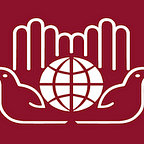The Institute of International Humanitarian Affairs and the Centre for Innovation Pilot Data and Innovation Management Course for Humanitarian Workers
July 19, 2017, New York City — Whether cashless transfers for food aid, digitized refugee identification or mobile messaging applications — new technologies have immense potential to propel humanitarian response and aid delivery in a more effective and utilitarian direction. These same innovations and the data they produce also present real-world implications on people’s lives, especially those who have survived humanitarian crises.
How can humanitarians maximize technology, design thinking, and big data for the benefit of the greater good? How can we counter potential negative impacts of technology on the protection and security of crises-affected populations? What are the next steps in solidifying universal norms for humanitarian data management?
These questions were posed by Ms. Atefeh Riazi, the UN’s Chief Information Technology Officer to a diverse group of participants enrolled in a pilot course launched last week by the Institute of International Humanitarian Affairs at Fordham University and the Centre for Innovation at Leiden University.
The Data and Innovation Management in Humanitarian Action course sought to bring real-world challenges of data and innovation management under academic critique and to prototype solutions adaptable to the humanitarian ecosystem.
The course featured guest lecturers from 11 academic and intergovernmental organizations at the forefront of designing innovative solutions in the humanitarian context, including:
- Atefeh Riazi, United Nations Assistant Secretary General, Chief Information Technology Officer
- Gina Lucarelli, Team Leader of Knowledge and Innovation for United Nations Development Operations, Coordination Office
- Mike Fabrikant, Software Developer for United Nation’s Children Fund Global Innovation Center
- Jeremy Boy, PhD, Data Visualization Specialist for United Nations Global Pulse
- Daniel Scarnecchia, Researcher of Standards and Ethics for the Signal Program of Human Security and Technology at Harvard Humanitarian Initiative
- Nathaniel Raymond, Director of the Signal Program of Human Security and Technology at Harvard Humanitarian Initiative
- Uzma Alam, PhD, Global Health Consultant
- Lee-Sean Huang, Co-founder and Creative Director of Foosa
- Jorn Poldermans, Innovation Manager for the Centre for Innovation at Leiden University
- Benjamin Kumpf, Manager of United Nations Development Program Innovation Facility
- Giulio Coppi, Humanitarian Innovation Fellow at the Institute of International Humanitarian Affairs
- Godfrey Takavarasha, Data Manager for United Nations Office for the Coordination of Humanitarian Affairs, Humanitarian Data Exchange
Lecturers presented perspectives on the role of technology in protecting human rights, design thinking for humanitarian problems, and ethics of data management as well as taught basic techniques for data visualization, innovation fund management and humanitarian data for coordination.
Ranging from country bureau staff of United Nations agencies to students conducting research on humanitarian issues, course participants hailed from China, Malaysia, Canada, Pakistan, and beyond. They came to the class with backgrounds as first responders, refugee registration officers, directors of aid agencies, legal experts among others.
Through collaboration and group work, the course also provided a unique opportunity for participants to learn best practices from one another.
Throughout the course, the immense benefits of embracing technology for humanitarian response confronted the ethical dilemmas and logistical barriers of doing so during conflicts, natural disasters and other crises.
Students also studied and discussed existing frameworks and guidelines on ethical and effective data management and innovation, such as The Signal Code: A Human Rights Approach to Information During Crisis by the Harvard Humanitarian Initiative; Handbook on Data Protection in Humanitarian Actionby the International Committee of the Red Cross; and A Guide to Data Innovation for Development by UN Global Pulse.
In addition, a two-day hands-on prototyping and simulation workshop, led by the Centre for Innovation at Leiden University allowed the humanitarians to tackle the theoretical and legal challenges they face in their current roles through data preparedness and interpretation.
This initiative will continue through future joint training opportunities offered by the IIHA and Centre for Innovation. The next course will be the HumanityX Summer School — Big Data for Peace and Justice, which will be hosted at Leiden University in The Hague from August 28 to September 1, 2017 and is still open for registration.
For more information, contact:
Angela Wells
Communications Officer
Institute of International Humanitarian Affairs
awells14@fordham.edu
Jorn Poldermans
Innovation Manager
Centre for Innovation
j.b.poldermans@fgga.leidenuniv.nl
This article was originally published on the previous IIHA Blog.
